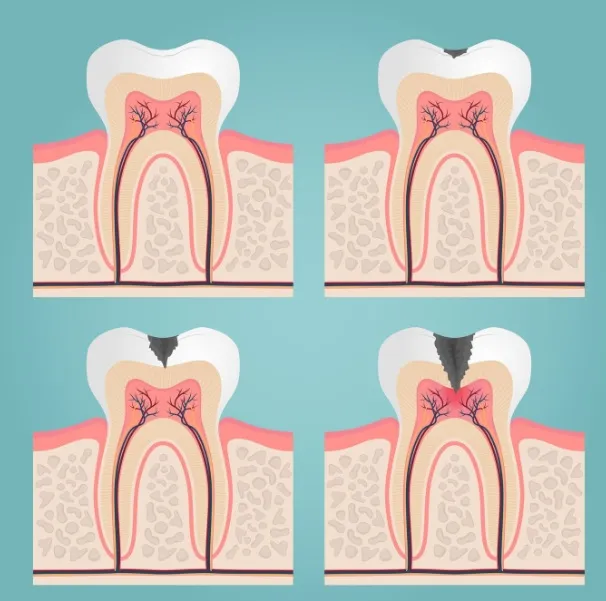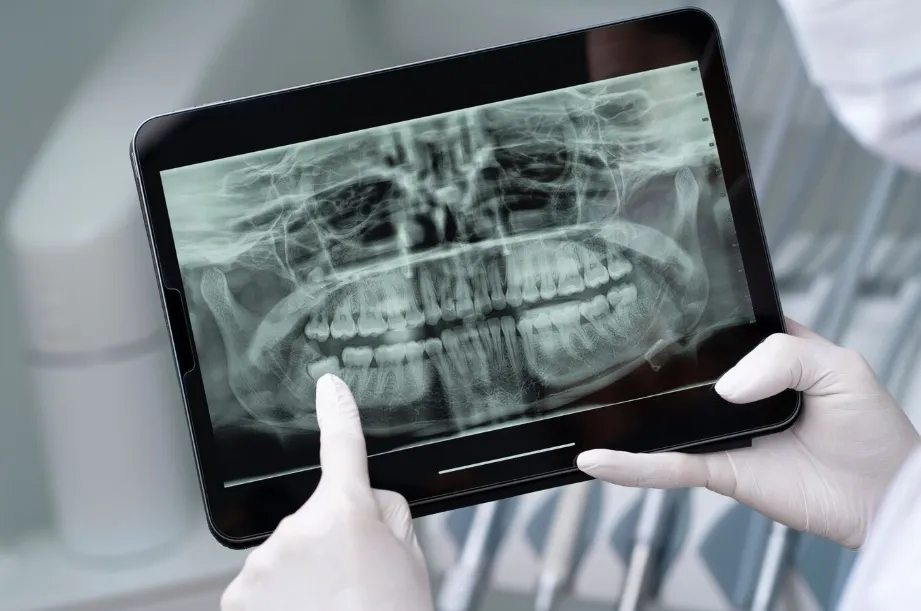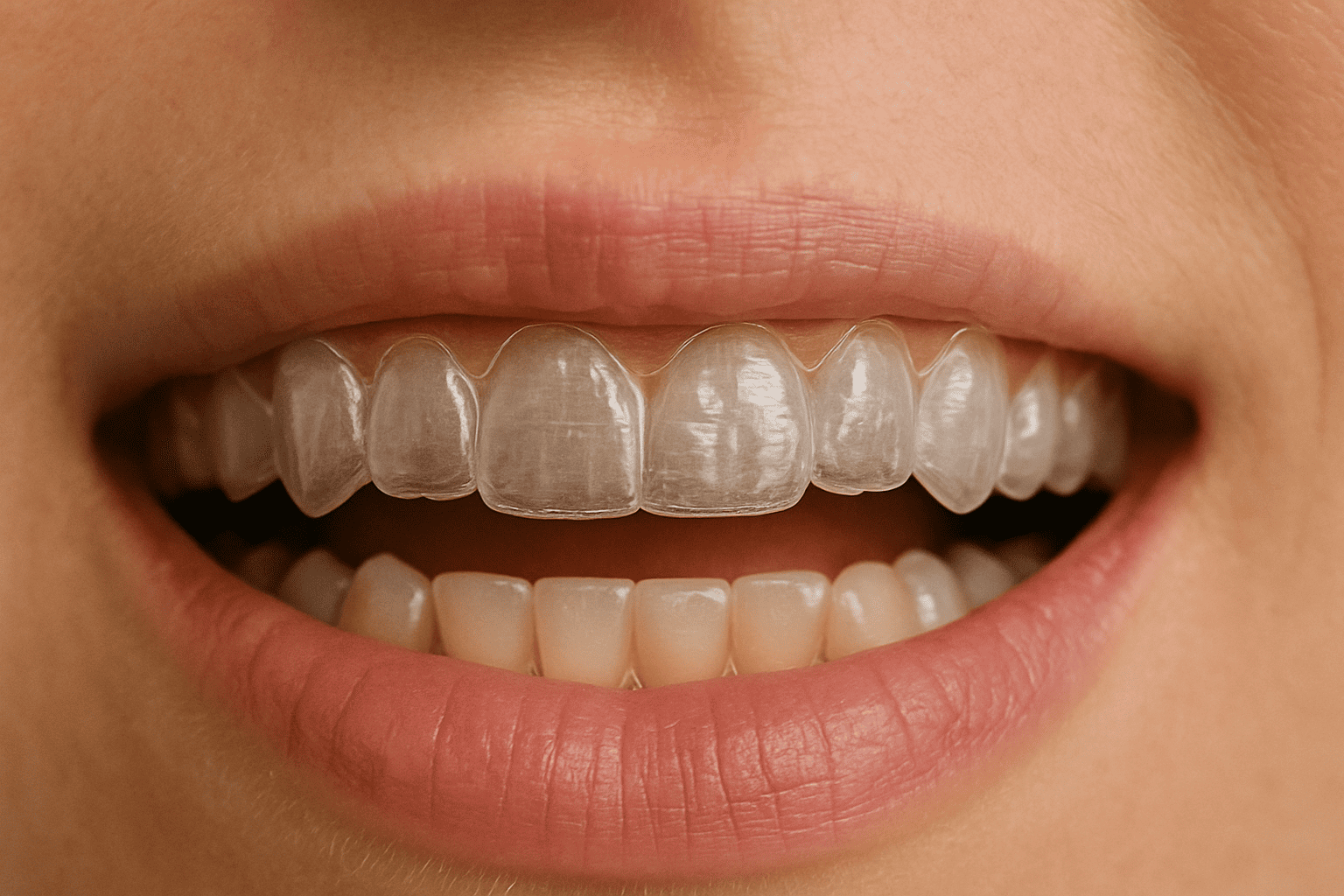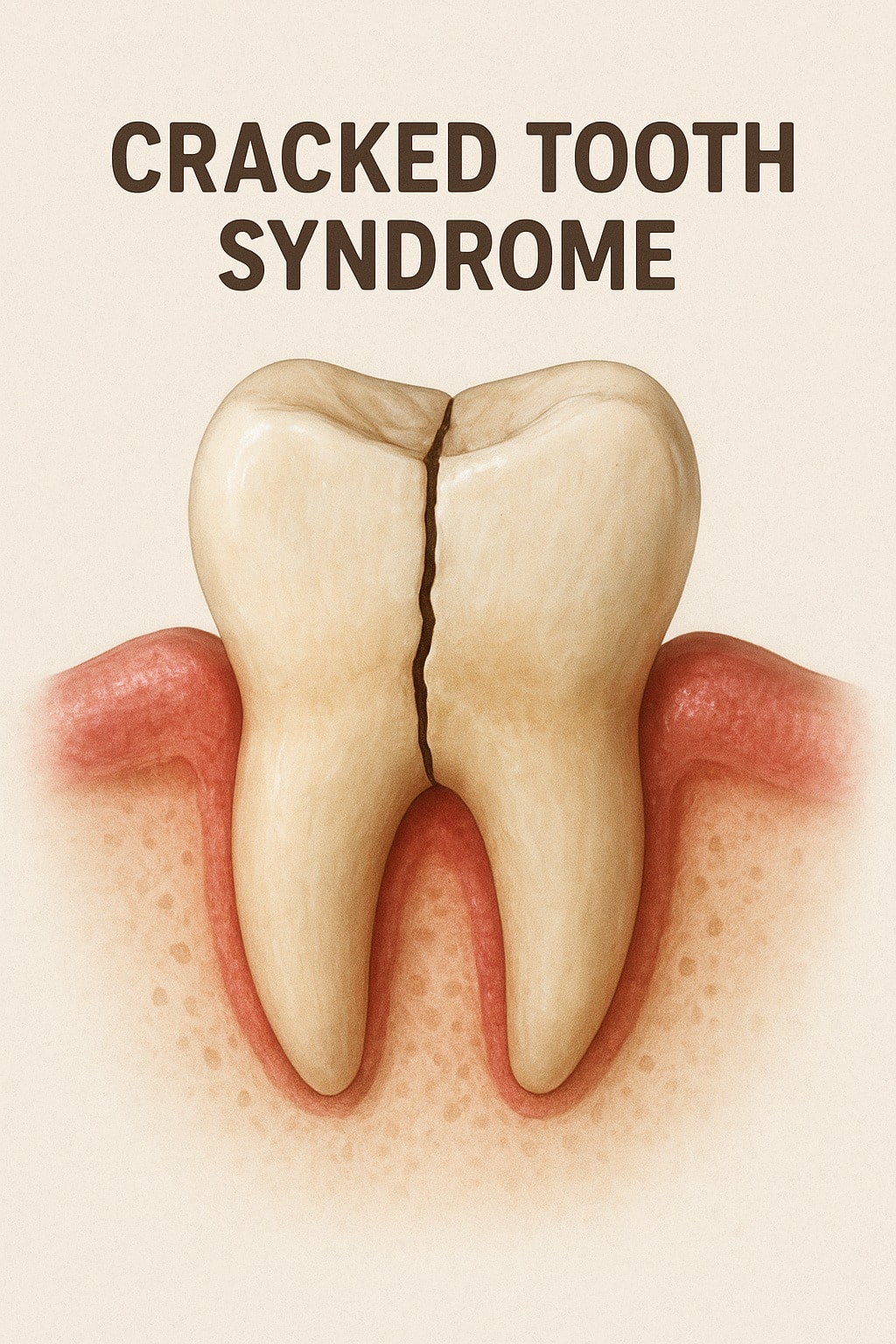Toothache: Causes, Symptoms, and Remedies
Toothaches can disrupt daily life with pain ranging from dull to severe. Learn their causes, symptoms, and effective remedies to manage discomfort and keep your smile healthy.

At our dental clinic, we know how disruptive a toothache can be. Whether it’s a dull throb or a sharp sting, tooth pain can make eating, sleeping, or even smiling a challenge. Understanding what causes toothaches, recognizing their symptoms, and knowing how to manage them can make all the difference. In this blog, we’ll break down the science behind toothaches in a way that’s easy to understand, share practical remedies, and highlight when it’s time to see a dentist. Let’s dive in!
What Are the Symptoms of a Toothache?
A toothache can feel like a nagging distraction or a debilitating pain, and its symptoms vary depending on the underlying issue. Understanding these signs can help you decide when to act and when to seek professional care. Here’s a detailed look at what you might experience:
- Types of Pain: Toothaches can present as a dull, persistent ache, often linked to early tooth decay or chronic teeth grinding (bruxism). A sharp, stabbing pain might signal a cavity, a cracked tooth, or a loose filling, as these expose sensitive nerves. Severe, throbbing pain often points to a deeper issue, like a dental abscess, where infection irritates the tooth’s pulp. The type of pain can give clues about the cause, but a dentist’s diagnosis is key.
- Sensitivity: Many people notice their teeth hurt when exposed to hot drinks, cold ice cream, sweet treats, or acidic foods, such as citrus. This sensitivity often stems from enamel damage or gum recession, which leaves the dentin—a softer, nerve-filled layer—exposed ). Brushing too hard or eating erosive foods can worsen this.
- Other Signs: You might see swelling or redness in your gums, or even puffiness in your face or jaw, which could indicate an infection or inflammation. Bad breath or a foul taste in your mouth often accompanies an abscess or decay. Pain when chewing or biting down is common with cracked teeth or cavities, as pressure irritates the affected area.
- Severe Symptoms: Some signs demand urgent attention. A fever or chills, difficulty opening your mouth, or swelling around your eye or neck may indicate a spreading infection, which is a dental emergency. Trouble breathing or swallowing requires immediate action. Persistent pain lasting more than a day or two, or pain that disrupts sleep, also signals the need for a dentist’s expertise.
Recognizing these symptoms early can prevent complications. If you’re unsure about the severity, it’s always better to be on the side of caution and book a dental visit.
.
What Causes a Toothache?
Toothaches can come from many sources, and understanding the cause is key to treating it. Here are the most common culprits:
- Tooth Decay: Bacteria in your mouth produce acids that eat away at your teeth’s enamel, forming cavities. These expose the sensitive inner layers, causing pain.
- Dental Abscess: A pocket of pus from a bacterial infection can form inside or around a tooth, leading to intense pain.
- Cracked or Broken Teeth: A chip or crack can expose the tooth’s nerves, making it painful, especially when chewing.
- Gum Disease: Inflamed or infected gums (periodontitis) can cause discomfort, especially if gums pull away from teeth, exposing sensitive roots.
- Teeth Grinding (Bruxism): Grinding or clenching your teeth, often at night, can wear them down and cause pain.
- Trauma: A fall or blow to the mouth can damage teeth, leading to immediate pain.
- Worn Enamel: When the hard outer layer of your teeth wears down, it exposes the softer, inner layer, which is more sensitive to temperature and sweets.
- Sinus Infections: Inflammation in your sinuses can press on nerves, causing pain in your upper teeth that feels like a toothache. The opposite can also occur when a tooth infection spreads to the sinus, causing a tooth-related sinusitis, which would also cause nasal congestion in the affected sinus.
- Referred Pain: Sometimes, pain from your jaw, ear, or even heart can feel like a toothache because of shared nerve pathways. Alternatively, pain from your tooth, such as a wisdom tooth, can cause referred pain to your ear and jaw.
- Impacted Teeth: Wisdom teeth that don’t come through properly can cause pressure or infection, leading to pain.
Each cause is unique, so a dentist’s expertise is crucial to pinpoint what’s going on and recommend the proper treatment.

How Can You Manage a Toothache?
When a toothache strikes, you want relief fast. Here are two approaches: home remedies for temporary help and professional treatments for lasting solutions.
Home Remedies
When a toothache hits, you want quick relief to get through the day or night. Home remedies can help ease discomfort temporarily, but they’re not a substitute for professional care. Here’s a deeper look at safe options to tide you over until you can see a dentist:
- Saltwater Rinse: Dissolve half a teaspoon of salt in a glass of warm water, swish it around your mouth for 30 seconds, and spit it out. This simple rinse helps reduce inflammation by drawing fluid from swollen gums and removing debris or bacteria. It’s a gentle, effective way to soothe irritation, but avoid this for young children who might accidentally swallow it.
- Cold Compress: Wrap an ice pack or a bag of frozen peas in a cloth and apply it to your cheek for 20 minutes, repeating every few hours as needed. This numbs the area and reduces swelling, especially if the pain is from trauma or an abscess. It’s a great first step for sudden pain, but don’t apply ice directly to your skin to avoid irritation.
- Pain Relievers: Over-the-counter medications, such as ibuprofen or paracetamol, can help dull the pain and reduce inflammation. Always follow the dosage instructions on the package, and never place aspirin directly on your gums—it can cause burns. These are safe for most adults, but check with a doctor for children or if you’re pregnant.
- Pain-Relieving Gels: Gels containing benzocaine (like Anbesol or Orajel) can numb the painful area for a short time. Use them sparingly, as overuse can cause side effects, and avoid them for children under 2 unless a doctor approves. Always read the label and store these out of reach of kids.
- Natural Remedies: Several natural options can provide temporary relief for a toothache, but should be used cautiously and not as a long-term solution. Always consult a dentist for persistent pain.
While these remedies can provide comfort, they don’t address the cause of the pain. If your toothache lasts more than a day or two, or if symptoms worsen, it’s time to see a dentist to prevent bigger problems.
Professional Treatments
For lasting relief, a dentist will target the cause. Common treatments include:
- Dental Exam and X-rays: To find the problem, such as cavities or cracks.
- Fillings: To repair cavities and restore your tooth.
- Crowns: To cover and protect damaged teeth, or to prevent teeth from fracture (in cases where they have been root-canal treated).
- Root Canal: To remove infected tissue inside the tooth, saving it from extraction.
- Antibiotics: To clear infections like abscesses.
- Extraction: For teeth too damaged to save.
- Bridges or Implants: To replace missing teeth.
If your pain lasts more than a day or two, see a dentist.

Toothache in Children: Care and Prevention
When your child complains of a toothache, it can be distressing, but knowing how to respond can make a big difference. Toothaches in children often stem from their developing teeth, poor diet, or inadequate hygiene, and prompt action can ease their discomfort while preventing more serious problems.
If the discomfort continues, child-safe pain relief can help, but always see a dentist for a thorough examination. Persistent pain needs a dentist’s attention to rule out serious issues like decay or infections.
Here are practical steps to manage and prevent toothaches in children:
- Relieve Pain Safely: Administer age-appropriate doses of paracetamol (such as Calpol) or ibuprofen (like Nurofen for kids), following the package instructions carefully. These can help reduce pain and inflammation until you can see a dentist.
- Use a Cold Compress: Apply a cold pack, wrapped in a soft cloth, to the outside of your child’s cheek for 20 minutes. This can numb the area and reduce any swelling, especially if the toothache is from trauma or an abscess.
- Monitor and Act: Keep an eye on the toothache. If it lasts more than 24 hours, or if you notice swelling, a fever, or a “gum boil” near the tooth, call a dentist immediately, as these could indicate a severe infection.
- Prevention Through Good Habits:
- Encourage brushing twice daily for two minutes with a soft toothbrush and a pea-sized amount of fluoride age-appropriate toothpaste to protect against cavities.
- Floss daily to remove plaque and food particles that can lead to gum irritation or decay.
- Limit sugary foods and drinks, like sweets or fizzy drinks, which feed bacteria that cause cavities.
- Schedule regular dental check-ups to catch issues early.,
By taking these steps, you can help soothe your child’s toothache and build habits that keep their teeth healthy and pain-free. If you’re ever unsure or the pain doesn’t improve, our clinic is here to provide gentle, expert care for your child’s smile.
Toothache During Pregnancy
Pregnancy can make your teeth more prone to pain due to changes in your body:
- Hormonal Changes: Hormones can inflame gums, leading to pregnancy gingivitis, which makes them tender and prone to bleeding.
- Morning Sickness: Vomiting exposes teeth to stomach acid, which can wear down enamel and increase sensitivity or decay risk.
To manage this, maintain good brushing and flossing habits, use a soft toothbrush, and consult your dentist for safe treatments during pregnancy. Regular dental care is crucial for preventing dental problems.
When Should You See a Dentist?
Contact a dentist if you have:
- Pain lasting more than 1–2 days.
- Lasting discomfort from cold or sweets
- Pain or discomfort when biting or to hot.
- Swelling in your face, jaw, or around your eyes.
- Bleeding red gums.
- A bad taste or discharge in your mouth.
For emergencies—like swelling that affects breathing or unbearable pain—head to A&E or call 999 (NHS). Don’t ignore severe signs, as they could point to a spreading infection.
How to Prevent Toothaches
The best way to avoid toothaches is to keep your mouth healthy:
- Brush twice a day for 2 minutes with fluoride toothpaste using a soft-bristle toothbrush.
- Floss daily to remove food and plaque, and use interdental brushes for more effective interdental cleaning.
- Reduce or eliminate sugary foods and drinks, and avoid smoking.
- Visit your dentist regularly for check-ups and cleanings. Ask about sealants or fluoride treatments for extra protection..
Conclusion
A toothache can range from a minor annoyance to a sign of something serious, but understanding its causes, symptoms, and treatments can help you take control. Whether it’s a cavity, gum issue, or even a pregnancy-related problem, quick action, starting with a dentist, can make all the difference. For kids, extra care with brushing and diet can prevent pain, while new technologies in 2025 are helping us catch and treat issues earlier than ever.
At our clinic, we’re here to help you keep your smile pain-free. If you’re dealing with a toothache or want to prevent one, book an appointment with us today. Let’s keep your teeth healthy together!






